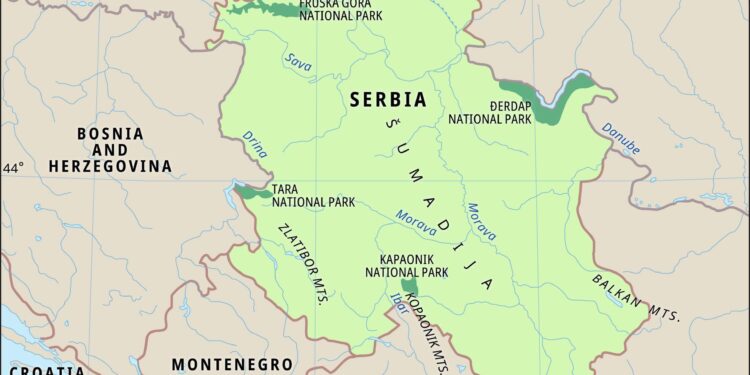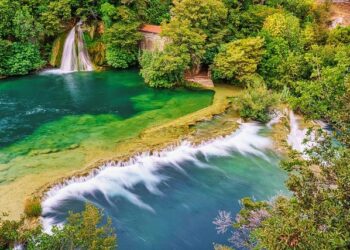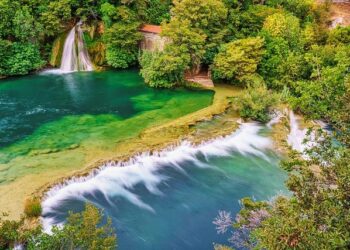Serbia has initiated legal proceedings against a key witness who testified about war crimes committed against Serbs during the Croatian conflict, marking a controversial turn in the ongoing reckoning with the region’s violent past. The case, reported by Gazeta Express, raises concerns among human rights advocates and international observers about the treatment of individuals exposing sensitive wartime truths. This development underscores the complex and often contentious process of addressing accountability and reconciliation in the Balkans decades after the Yugoslav wars.
Serbia Initiates Legal Action Against Whistleblower Exposing War Crimes in Croatia
In a controversial move that has sparked widespread criticism from human rights organizations, Serbian authorities have launched legal proceedings against a whistleblower who brought to light evidence of war crimes committed against ethnic Serbs during the Croatian War of Independence. The individual, whose identity remains protected for security reasons, disclosed classified documents and eyewitness testimonies detailing forced displacements, unlawful detentions, and extrajudicial killings. Authorities in Belgrade accuse the whistleblower of jeopardizing national security and defaming state institutions, raising concerns about freedom of speech and protection for those exposing human rights abuses.
The case has brought renewed attention to unresolved war-time atrocities and the complex legacy of the Balkan conflicts of the 1990s. Key points in the ongoing legal battle include:
- Alleged War Crimes: Systematic attacks on Serb civilians in Eastern Croatia.
- Whistleblower Protections: Calls from international NGOs for safeguarding sources revealing war crimes.
- Government Response: Stricter enforcement of laws against unauthorized disclosure of classified information.
| Aspect | Details |
|---|---|
| Status of Whistleblower | Under investigation, facing possible charges |
| International Reaction | Condemnation from human rights groups |
| Serbian Government Stance | Emphasizes national security and legal processes |
Implications for Regional Justice and Accountability in the Balkans
The prosecution of a key witness who exposed war crimes against Serbs in Croatia marks a troubling precedent for transitional justice in the Balkans. This case raises fundamental questions about whether national courts are willing – or structurally equipped – to impartially address allegations regardless of ethnic or political affiliation. Observers warn that such legal actions risk discouraging potential witnesses from coming forward, undermining efforts to document and prosecute wartime atrocities comprehensively. The wider regional justice mechanisms, including international tribunals, may face additional strain as mutual distrust deepens between successor states of the former Yugoslavia.
Beyond legal ramifications, these developments could hinder reconciliation and accountability across the region. Key challenges include:
- Selective justice perceptions: Citizens may view prosecutions as instruments of ethnic or political vendettas rather than impartial legal processes.
- Cross-border cooperation difficulties: Sharing evidence and witnesses becomes fraught amid fears of retaliation or politicization.
- Implications for regional stability: An unresolved legacy of war crimes impedes social healing and fuels nationalist rhetoric.
| Stakeholder | Primary Concern | Potential Impact | ||||||||||||
|---|---|---|---|---|---|---|---|---|---|---|---|---|---|---|
| Serbian Judiciary | Upholding national narratives | Risk of bias allegations | ||||||||||||
| Croatian Authorities | Acknowledging crimes against Serbs | – Reformat the whole snippet for consistency and accessibility. |
| Entity | Role | Current Status |
|---|---|---|
| United Nations | Proposed oversight and protection framework | Under discussion |
| International Criminal Court | Legal adjudication and witness security guidance | Active but limited mandate |
| Human Rights Watch | Advocacy and reporting | Monitoring ongoing |
Future Outlook
The prosecution of a key witness who disclosed war crimes against Serbs in Croatia marks a contentious development in Serbia’s ongoing reckoning with its past. As the case unfolds, it raises critical questions about justice, accountability, and the complexities of addressing war crimes in the region. Observers will be closely monitoring how this process influences Serbia’s broader efforts toward reconciliation and the rule of law.
















